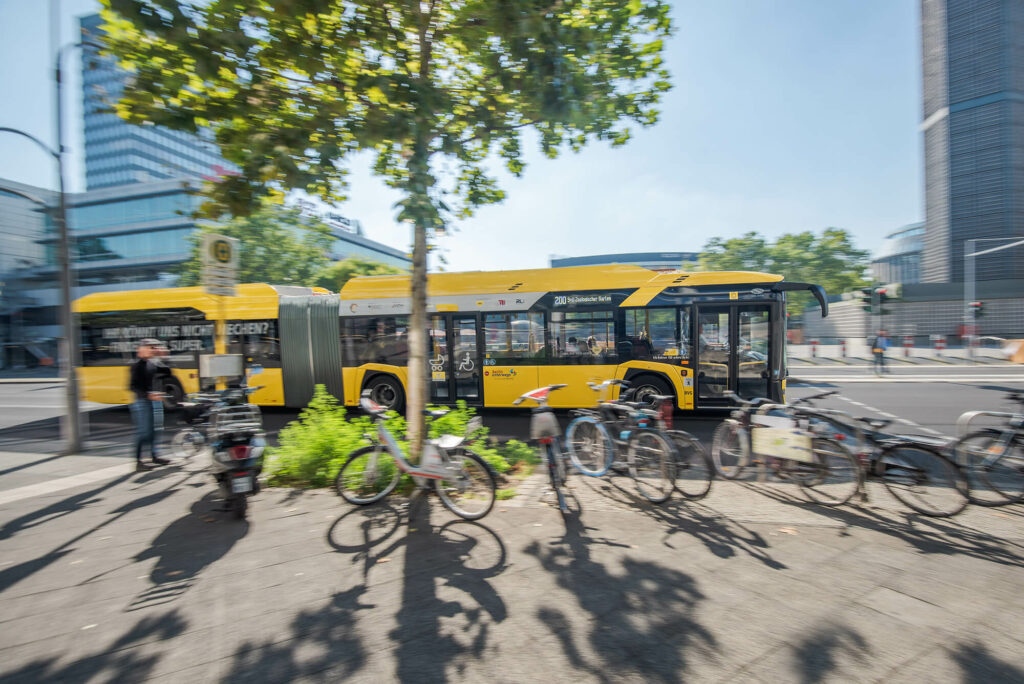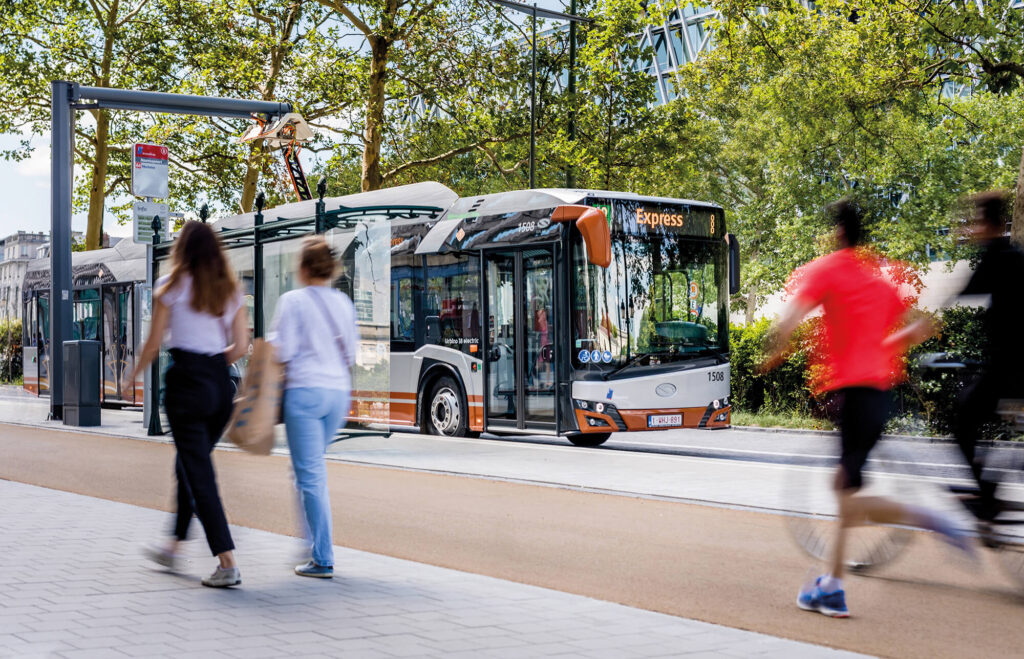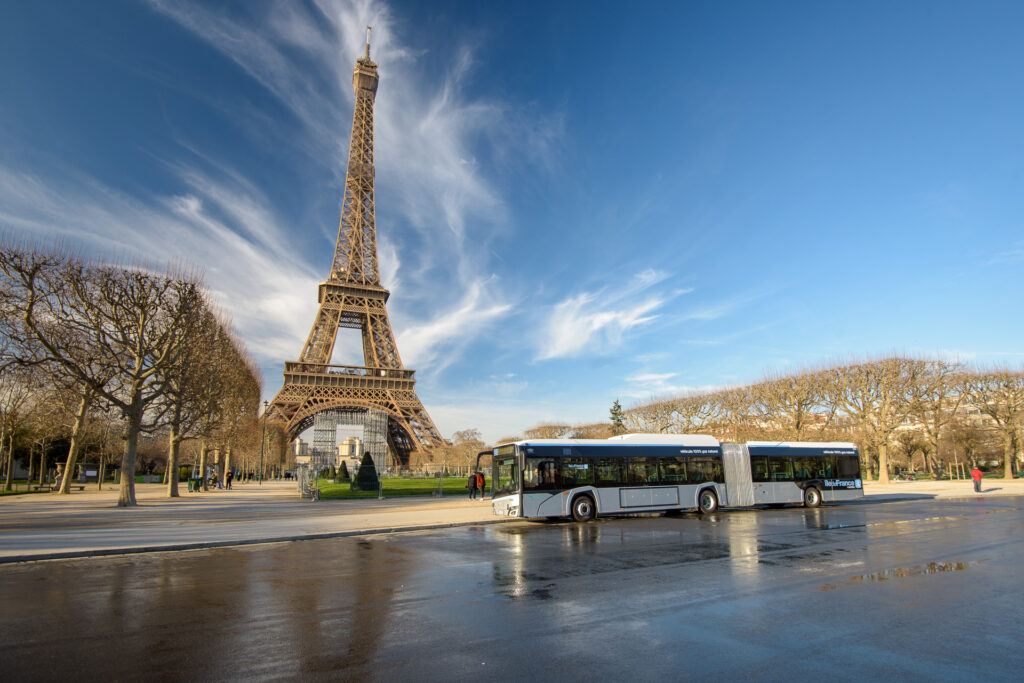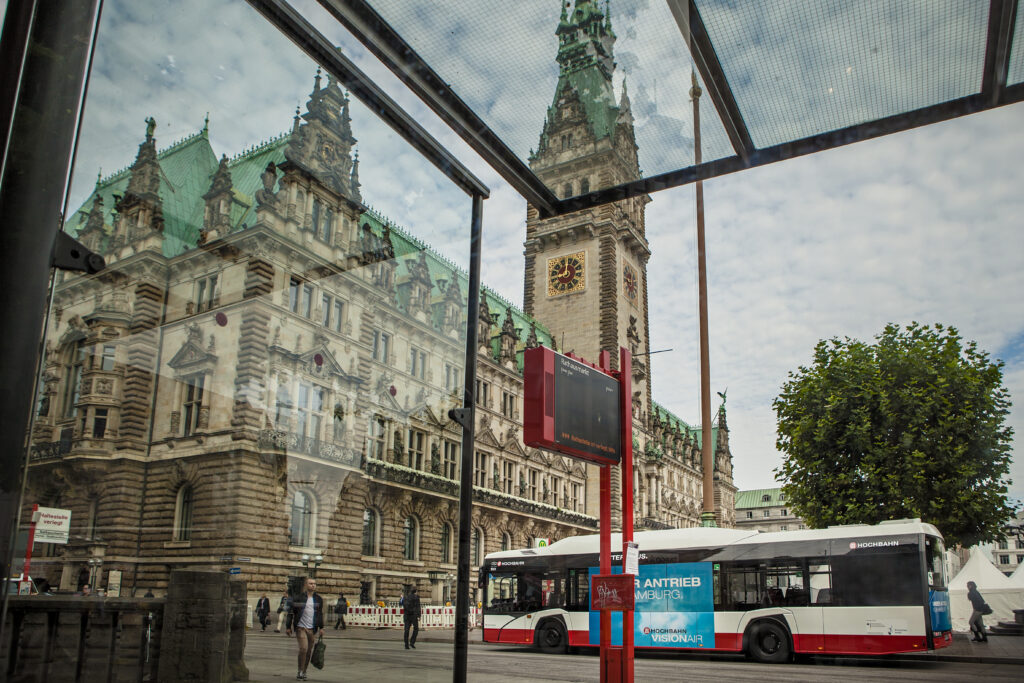UITP: 140 years of mobility and one question that remains as relevant as ever
Before the Summit in Hamburg begins, it is worth taking a closer look at what UITP is.

Public transport more and more often meets high standards and ensures a comfortable journey in modern conditions. Innovative public transport opens up absolutely new opportunities for us. It should be maintenance-free and its use should be intuitive. It is operated by buses that do not emit exhaust fumes, and are ideally connected to both the train network and the means of micromobility. Public transport on request or maybe flying taxis. What are the trends in public transport?
Clean air, silent streets, no tiresome noise. Safe, generally accessible, easy to operate and sustainable transport. Fast access to transportation timetables, transport information in real time. This is already the reality of modern cities that are both people-friendly and environmentally-friendly. Cities where emission-free buses running on green energy are in operation. Cities which we can and should design today.

According to Eurostat, ca. 40 percent of the population of EU member states live in cities. In line with projections, over the next few years the percentage of people residing in urban areas will increase steadily. The rise in passenger car density is extremely fast. The profusion of cars in large conurbations generates capacity issues for thoroughfares. This is counter-productive to global efforts aimed at reducing the release of CO2 into the atmosphere. Reducing traffic in cities is necessary to effectively implement the concept of sustainable cities. Trends in public transport are also following this.
In order for that to happen, what is necessary is a coherent vision for the development of two components: urban solutions and public transport provided as a part of the former. Procedures related to the designing of urban space must take into consideration the mobility needs of residents. Promoting public transport means fewer cars in city centres, as well as less noise and exhaust gases, unobstructed pavements and roadsides, and instead of vast, congested parking lots – more space for parks, playgrounds and public utility areas.
Modern cities boast many ideas for freeing public space for city residents. However it requires that systemic solutions be introduced which will support the transport of the future and forms of travel alternative to passenger cars in the long run.
The city of Paris would eliminate half of all its 140,000 parking spaces, and the space reclaimed will be turned into wider pavements, roadside gardens or picnic spots. In order for such measures to work, residents first need to have access to a wide range of possibilities with regard to public transport, including micro-mobility solutions.

Hamburg wants to mark a climb in passenger numbers of 50%! In order to reach this goal, Hamburg intends to expand its bus network, its underground train network, as well as the support of so-called shared mobility services. The goal is for every citizen of Hamburg to have access to some kind of public transport within a 5-minute walk, regardless of where they are at that moment.

In Copenhagen, a few years ago, the number of bicycles entering the city center exceeded the number of cars entering it. The city continues to build new bike paths, footbridges and bridges, and already over 60 percent of residents go to work or school by bike every day.
Clean transport zones may serve as another significant solution to help legitimise the privileges of public transport. There are currently over 230 such low-emission zones in Europe. They are a means to reduce vehicle traffic in city centres, and at the same time they spur a change in the character of these areas, making them more resident-friendly.
Trends in public transport are moving towards improving the travel experience. Passengers want, in particular, shorter waiting times when changing their mode of transport, and this can be achieved thanks to the development of platforms that enable ticket-free transport and thanks to the establishment of mobility hubs that enable multi-modal transport offering a range of travel options.
Residents of a growing number of cities can avail themselves of a wide range of technologies that facilitate everyday mobility while at the same time showing that they care about the environment and the surroundings we live in. We can already ride on electric and hydrogen buses in cities, while car, scooter and bike sharing services are within close reach, too. Notably, the range of transport options is changing swiftly and adapting to the needs of drivers and passengers.
Public transport is adapting to the needs of passengers and is more and more boldly reaching out for solutions of the future. The solutions of the future can be discerned, even today, among the equipment of some city buses. Advanced Driver Assistance Systems help drivers thanks to, among other things, the use of a smart brake assistance system or cameras that can detect pedestrians or cyclists situated in the blind spot of a vehicle. Thanks to advanced zero-emission technologies, bus stops can be set up in places that were hitherto inaccessible. An electric bus could even drive into a shopping centre or a railway station!
One of the ultra-modern potential additions to contemporary transport options is being devised by firms which are attempting to create autonomous electric flying vehicles that could serve as taxis and provide ride-sharing services.
In order to make it even easier to benefit from the range of options available, cities such as Gdynia plan (together with startup Vooom) to integrate all options of city transport and make them available as one service. British firm Urban Things, on the other hand, will soon launch its pilot programme “Be-in / Be-Out”. This particular system involves a travel app that communicates via Bluetooth and allows the whole journey of a passenger to be tracked and all payments managed, without the passenger having to take out their phone. This means not only saving time. The system will allow the unlimited use of all the advantages of travelling.
Services on demand are one of the more eye-catching trends in public transport predicted to emerge in the next few years. One idea to broaden the range of modern public transport options is so-called last mile transport. This particular solution allows travellers to cover the last stretch of their journey by using, usually, micromobile solutions: bicycles or scooters. This is a great opportunity to make the offering for passengers more appealing and to propose a “door-to-door” service ready for use. This will allow to shorten travel times, lower the total cost of transit for the whole journey, and to accurately respond to the needs of residents.
In Cracow the Tele-bus service has been operating since 2007. It entails ordering a minibus by phone and the service is available to anyone. It can be requested up to 30 minute before the planned ride, and will set you back just the current price of public transport tickets.
Public transport that responds to the needs of city dwellers is almost upon us. Nowadays public transport is opening up completely new possibilities to us. It operates practically unmanned and it is intuitive to use.
Before the Summit in Hamburg begins, it is worth taking a closer look at what UITP is.
Learn more about the changes introduced by GSR2 and how they contribute to protecting all road users.
BRT in Aalborg: the city's solution for enhancing urban transport – what makes it so effective?
